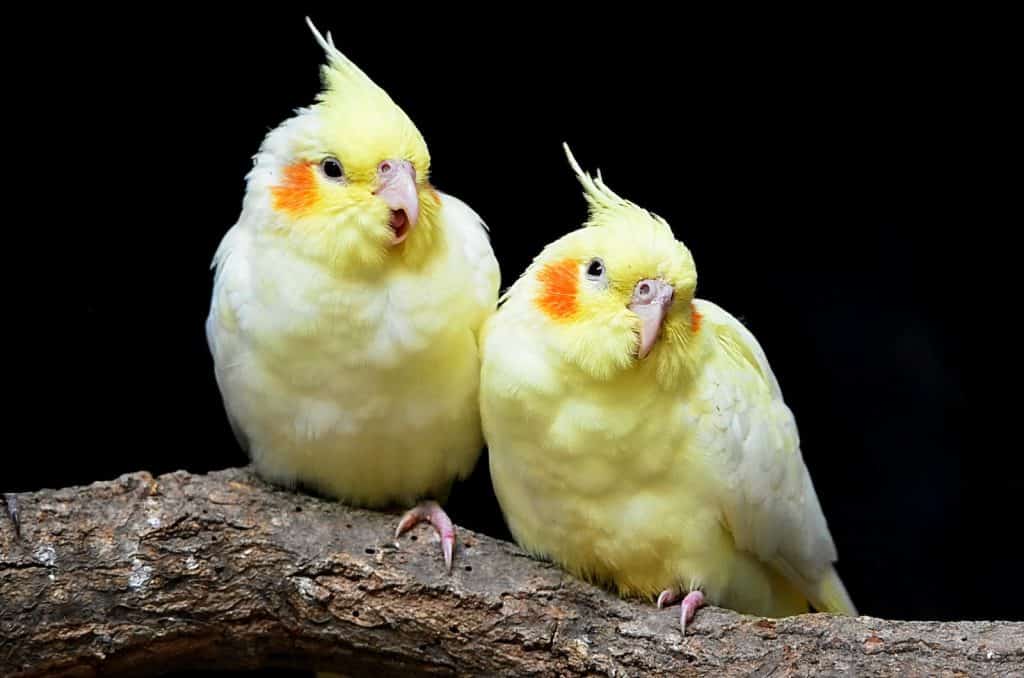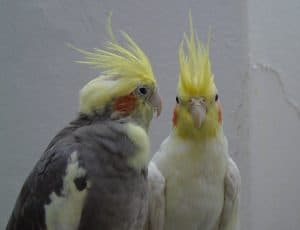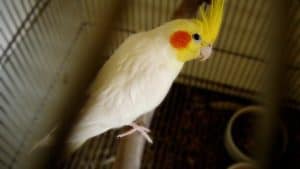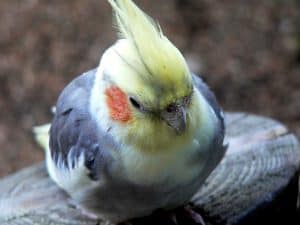Cockatiels are lively and affectionate birds that are known for their social personalities. They make great pets, and many bird owners enjoy their company and the antics they bring to their households. However, you may have noticed that your cockatiel often faces the wall, or the cockatiel stares in a particular direction and makes no move to turn around. This can be not very clear and even concerning for some bird owners. In this blog post, we’ll explore why your cockatiel may be facing the wall and what it means for their behavior and health.
Why Does My Cockatiel Face the Wall? Possible Reasons
There are several reasons why your cockatiel may face the wall. Some of the most common reasons are:
1. Hiding from Perceived Danger
Birds are naturally wary animals and have the instinct to hide from perceived danger. If your cockatiel feels threatened or scared, they may face the wall as a form of self-defense. They may feel threatened by a loud noise, a new person or pet in the house, or changes in their environment.
2. Sleeping or Napping
Cockatiels need plenty of rest and sleep, and they may face the wall when they are sleeping or napping. They may feel more comfortable and secure with their back against the wall, which can help them sleep more deeply.
3. Comfort and Security
Birds are social animals, but they also need time alone to rest and recharge. Facing the wall can provide them with a sense of comfort and security, especially if they feel overwhelmed or overstimulated.
4. Illness or Injury
If your cockatiel is facing the wall and not engaging in its normal activities, it may be a sign that they are ill or injured. Some common health issues that can cause birds to face the wall include respiratory infections, internal parasites, or injuries to the beak, eyes, or feet. Physical illness or injury such as feather plucking can cause birds to become withdrawn and lethargic, which could lead them to face the wall for long periods of time.
5. Territorial Behavior
In some cases, facing the wall can be a sign of territorial behavior, especially if your cockatiel is in a cage. They may be marking their territory and defending their space.
6. Attention Seeking Behavior
If your cockatiel is trying to get your attention, it may face the wall to show you. They may be looking for a snack or some time out of their cage, and facing the wall can be an effective way to let you know what they want.
These curious behaviors may seem concerning, but they can be easily explained. It’s important to observe your cockatiel and look for other signs of health or behavioral issues if you are concerned about their welfare.
What Does it Mean for Your Cockatiel’s Health?
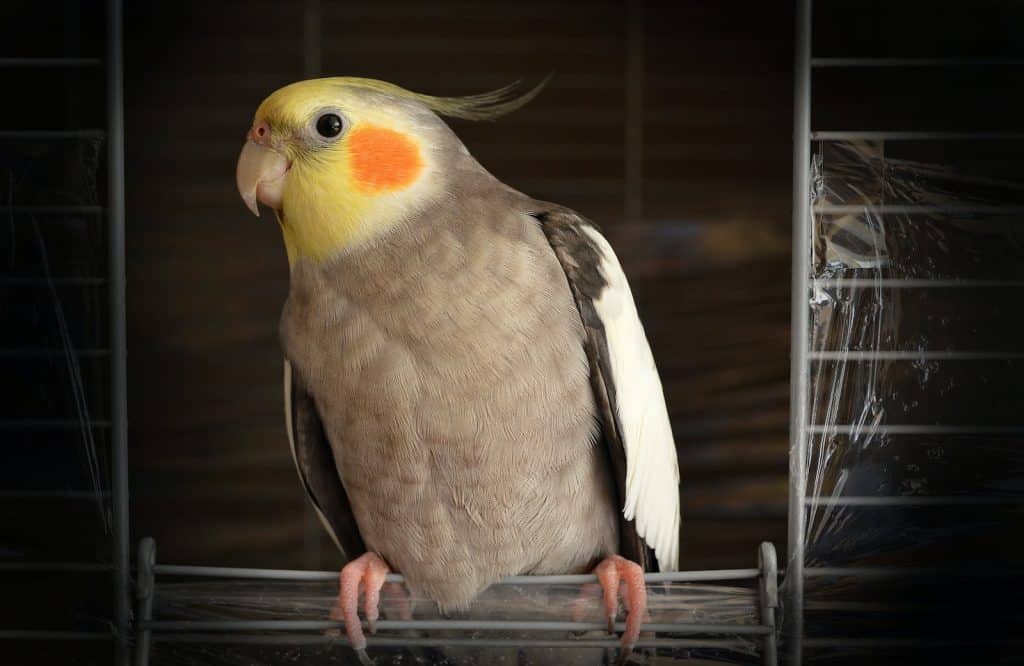
Observing your cockatiel’s behavior is an important part of keeping them healthy and happy. If you notice that your cockatiel is facing the wall frequently, it’s important to consider the reasons why they may be doing so and take appropriate action.
1. Importance of Observing Behavior Patterns
Birds are complex animals, and their behavior patterns can tell us a lot about their health and well-being. Paying attention to your cockatiel’s behavior can help you identify any health issues early on and get them the treatment they need. Spend time watching your cockatiel and take note of any changes in their behavior, such as sleeping more or less than usual.
2. The Need for a Vet Check-Up
If your cockatiel is facing the wall and not engaging in its normal activities, it’s important to take them to a veterinarian for a check-up. Your vet will be able to examine your bird and perform any necessary tests to determine the cause of their behavior.
3. How to Identify Signs of Illness or Injury
There are several signs that can indicate that your feathered friend is ill or injured. Some of the most common signs include:
- Fluffed up feathers
- Loss of appetite or weight loss
- Increased drinking and urination
- Sneezing or coughing
- Discharge from the beak or eyes
4. Maintaining a Healthy Environment for Your Cockatiel
Providing your cockatiel with a healthy environment is an important part of keeping them happy and healthy. Make sure that their cage is spacious, clean, and well-ventilated. Provide them with a varied diet, and offer them plenty of opportunities for physical and mental stimulation. Maintaining a stable and consistent environment is also important for their well-being.
For other birds, facing the wall could also be a sign of contentment, security, and comfort. It may be their way of claiming their territory or just enjoying some alone time away from the hustle and bustle of daily life.
By monitoring your bird’s body language on a regular basis, you will be more aware of any odd behavior that could indicate an issue. If your cockatiel is facing the wall, keep an eye on them and take appropriate action to ensure its health and well-being.
How to Address the Behavior
If you’re concerned about your cockatiel’s behavior, there are steps you can take to address it.
1. Providing a Safe and Comfortable Environment
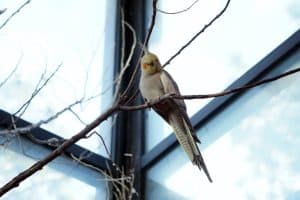
Your cockatiel needs a safe and comfortable environment to feel secure and relaxed. Make sure that their cage is spacious, clean, and well-ventilated. Offer them plenty of perches, toys, and hiding places to explore and play. Sometimes aggressive behavior can be caused by boredom, so make sure to provide them with plenty of stimulation.
2. Encouraging Interactive Play and Bonding
Cockatiels are social animals and enjoy interacting with their owners. Spending time with your bird and offering them interactive toys and playtime can help strengthen the bond between you and your pet.
3. Offering Mental Stimulation
Birds are intelligent animals and need mental stimulation to keep their minds active and engaged. Offer them puzzles, foraging toys, and new experiences to keep them mentally stimulated and happy.
4. Addressing Any Underlying Health Issues
If your cockatiel is facing the wall due to an underlying health issue, it’s important to address it promptly. Your veterinarian can provide you with the necessary treatments and advice to help your bird recover and get back to their normal behavior.
A cockatiel’s attention-seeking behavior can be both entertaining and worrying. Keeping an eye on your bird’s movements and behaviors can help you identify any underlying issues quickly, so it is essential to stay involved with their care and well-being.
Final Thoughts: Why Does My Cockatiel Face the Wall?
In conclusion, cockatiels display a range of behaviors and body language that can tell us a lot about their health and well-being. If you notice that your cockatiel is facing the wall frequently, it’s important to take action to identify any underlying health issues or investigate any other potential causes.
Taking steps to provide them with a safe, comfortable environment, offering interactive playtime, and providing mental stimulation can all help to ensure that your cockatiel is content and healthy. If you’re concerned about your bird’s behavior, it’s important to consult with a veterinarian for advice. With the right care and attention, you can provide your pet with a long and happy life.
